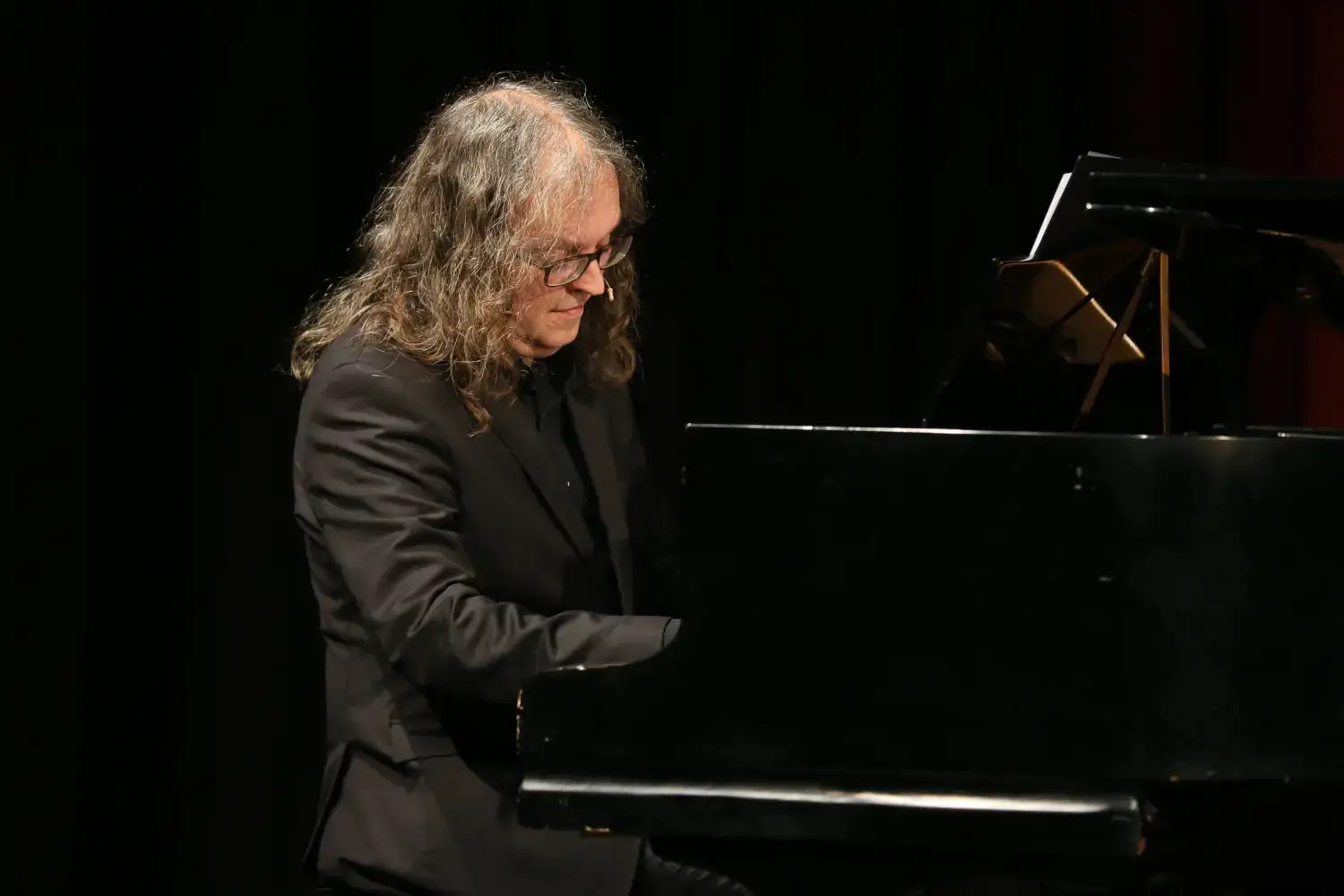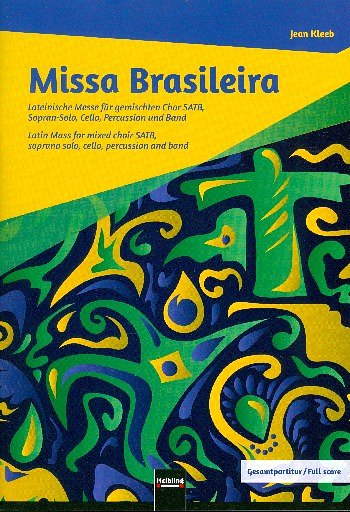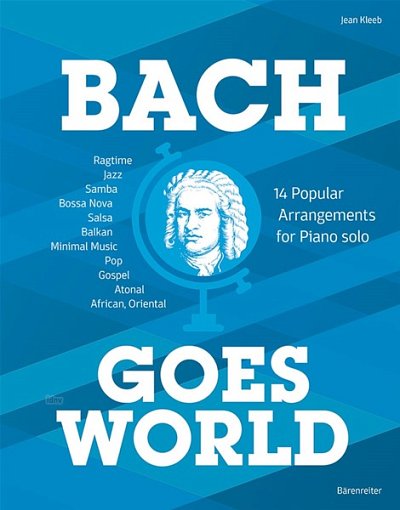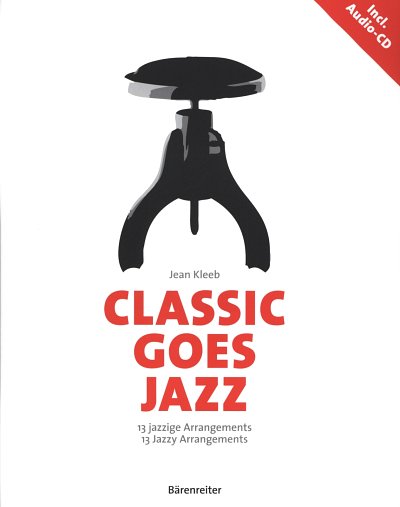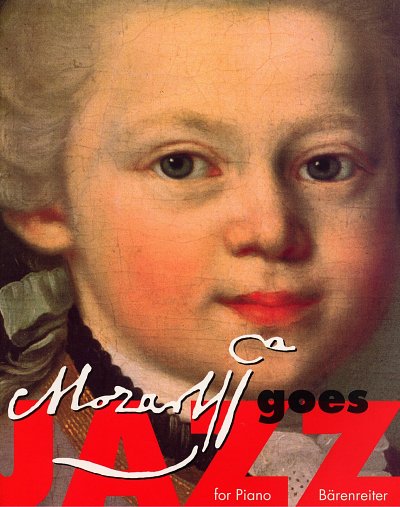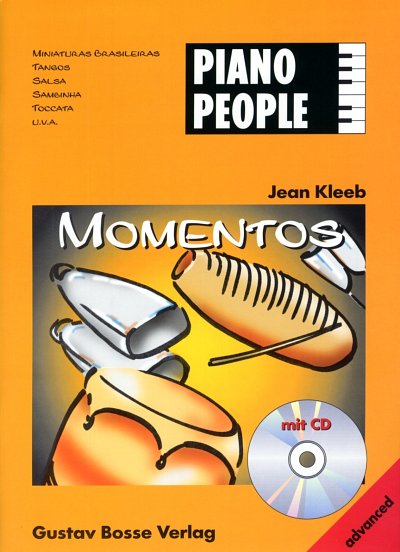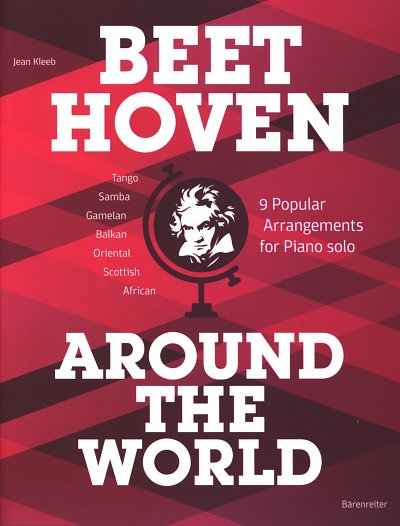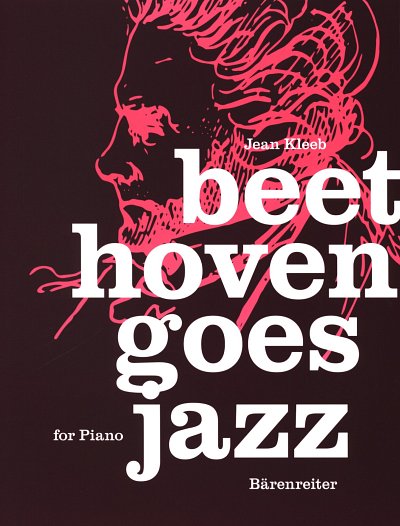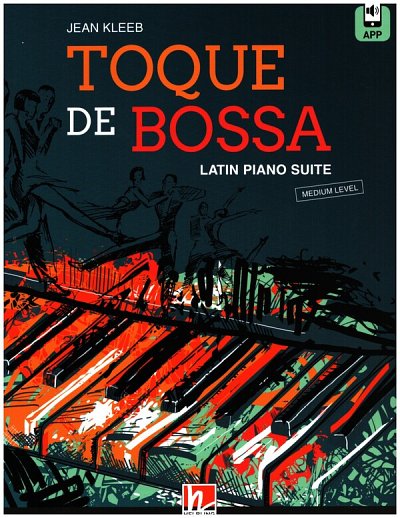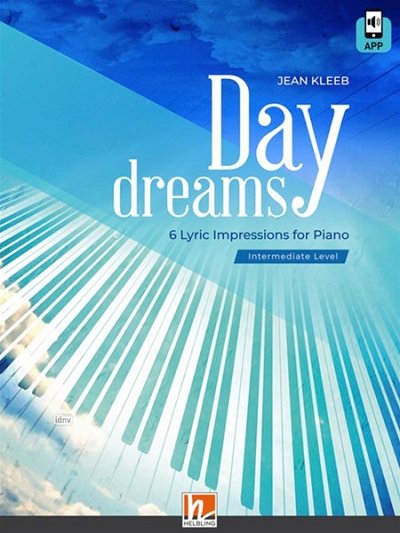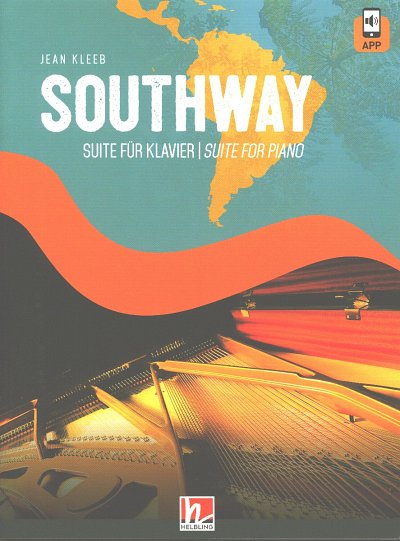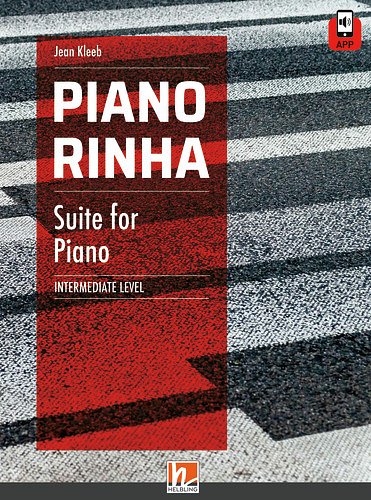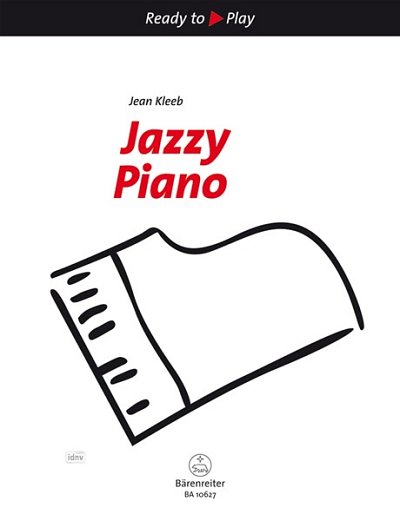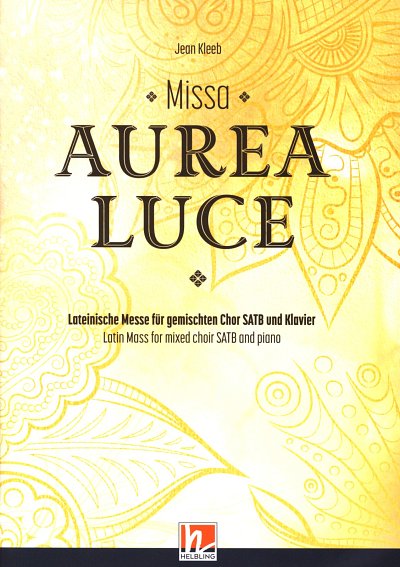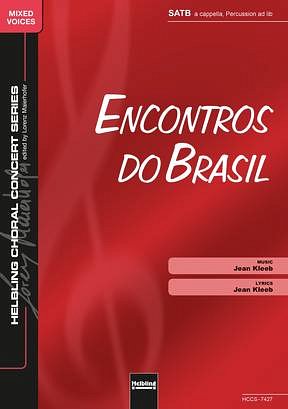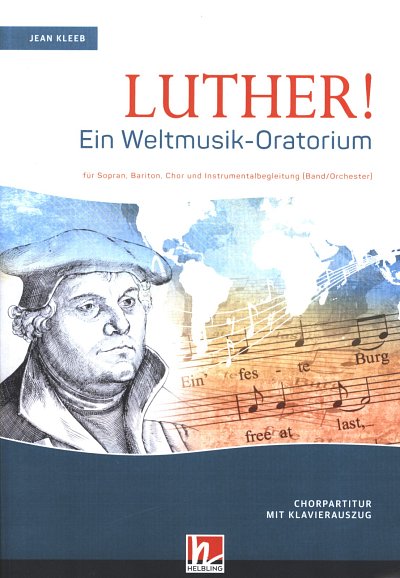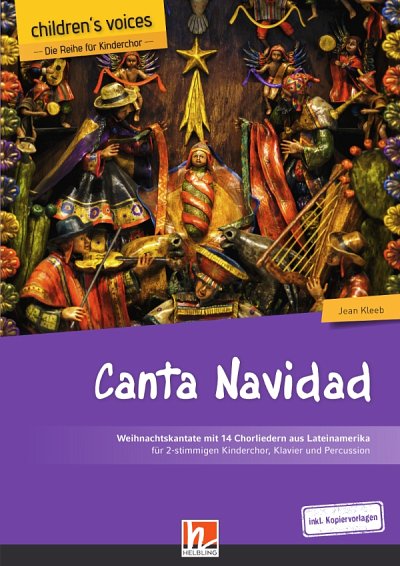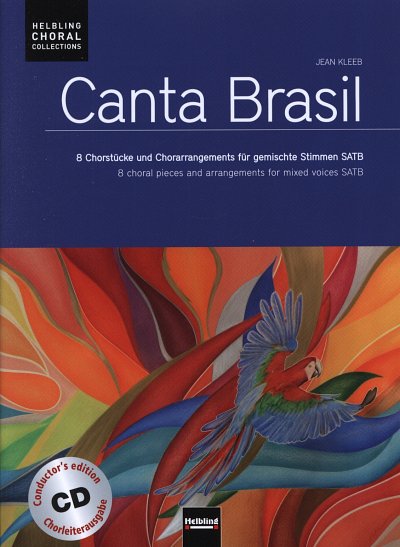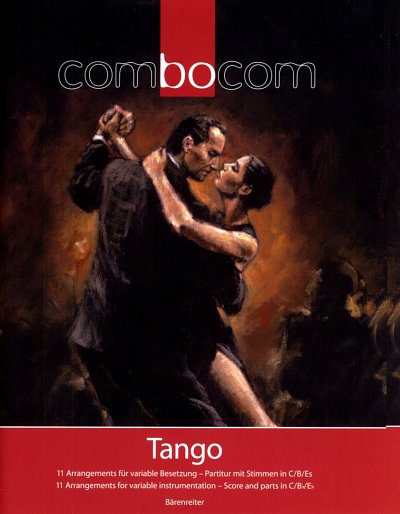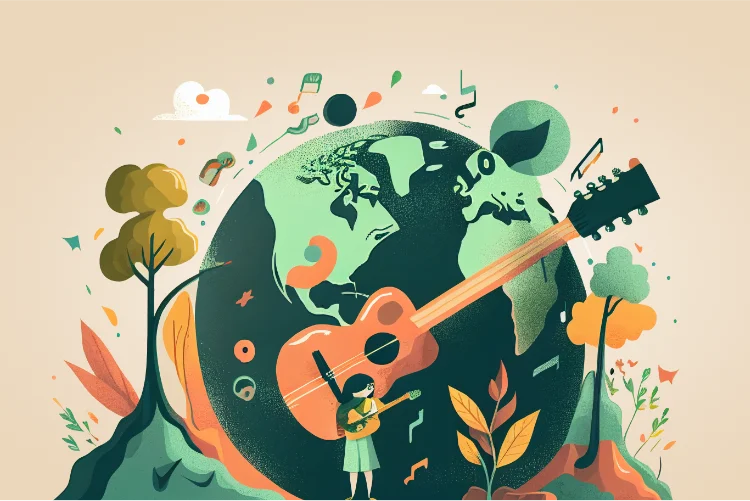Jean Kleeb was born in Santo André, Brazil. He began playing the piano at the age of nine and then attended the music school for jazz and popular music Fundação das Artes de São Caetano do Sul, where he learned various musical directions, including the diverse Brazilian style.
At the age of 16, he began studying school music at the University of São Paulo, graduating in 1984. He then completed a composition degree until 1988. He studied choral conducting with Marco Antonio da Silva Ramos and composition with Willy Correa de Oliveira. He studied piano with Gilberto Tinetti and Eduardo Martins and also developed autodidactically, especially in the field of modern and South American jazz and modern music.
During this time, he began conducting choirs and participated in workshops for choir and orchestra conducting with renowned conductors such as Eric Ericson from the State Choir Stockholm.
In 1991, he came to Germany, where he continued his work as a composer, pianist, arranger, choir and orchestra conductor, singer, and music teacher. In Stuttgart, he attended the Free University of Stuttgart for Waldorf Education, and in 1992 he moved to Marburg. Until 2001, he was a music teacher at the Waldorf School Marburg and has been a freelance musician ever since.
From 2002 to 2005, he worked as a lecturer for Latin American music and improvisation at the Music Institute of the Justus Liebig University Gießen. He is an invited lecturer and workshop leader at various universities, schools, conferences, and congresses, including Chorcom, VdM, and events by Bärenreiter and Helbling publishers. He regularly gives courses on his works in Germany, Switzerland, Austria, the Netherlands, Spain, the USA, Argentina, and Brazil.
He is also a jury member at international choir festivals such as the Grand Prix of Nations 2019 in Gothenburg (Sweden) and the choir festival of the German Choir Association.
He began composing early. His compositions for orchestra, chamber music, piano, and choir stylistically range from modern music, classical, popular music to world music. He has now composed more than 150 works.
He has published numerous music books and CDs, including with Bärenreiter, Gustav Bosse, and Helbling Verlag, Carus Verlag, Edition Ferimontana. In total, 12 piano cycles with original compositions between jazz, classical, and Latin; contemporary choral works of German lyric poetry, South American choral pieces, and sacred works such as Cantata to Saint Elizabeth, World Magnificat, Missa Brasileira, and Luther! A World Music Oratorio for the Reformation Year 2017. For Beethoven Year 2020, he composed the piano cycles Beethoven goes Jazz and Beethoven around the world. His most recent works include the cantata Ipirungaua – Amazonas for Future about the creation story in the Amazon (Brazil) and the musical play "Magic of Freedom" addressing the witch hunts in Marburg in the 16th century.
He leads several ensembles, including the chamber choir Klangfarben (Gießen), the choir "Joy of Life" of the Kurhessian Cantorei Marburg, and the choir "Vozes do Brasil" (Cologne). In recognition of his long-standing work in the Evangelical Church in Germany, he was appointed cantor in 2022.
